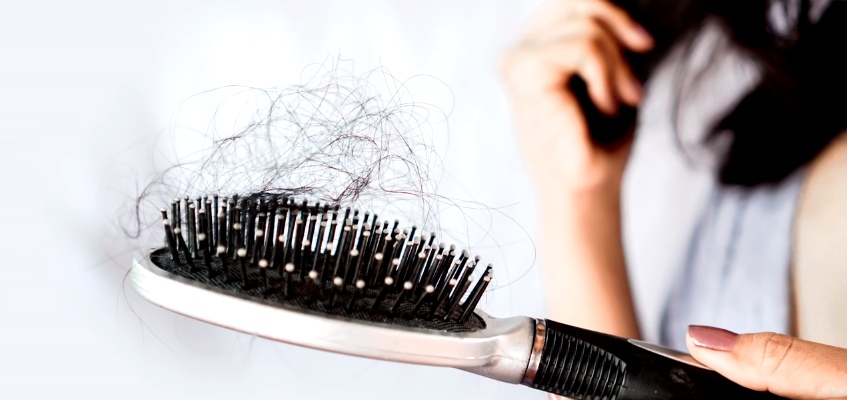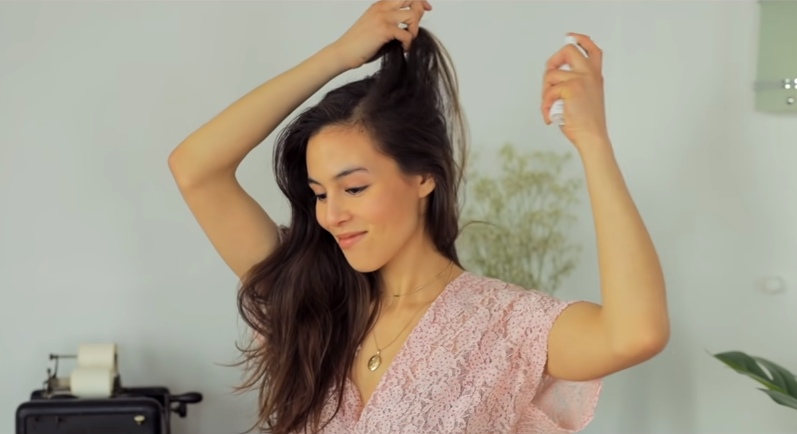Hair breakage is something that greatly affects a lot of people. It can be frustrating and challenging to fix, especially if you have no idea what could be causing it. The lack of knowledge on this issue makes it harder for people to find a solution.
Hair is a living tissue that requires care. Unfortunately, many women ignore the process of caring for their hair, which can result in broken strands. Hair breakage is a serious medical condition that can lead to hair loss and baldness.
So what exactly is hair breakage?
If your hair has long or fine breaks and the smaller hairs around the hairline have split ends, then this is your broken hair. It is caused by excessive manipulation, high-tension hairstyles, harsh products, or frequent bleaching.
Also, It can happen for several reasons, including genetics, hormonal changes, and environmental conditions like heat waves or dry climates. Hair breakage is the gradual shedding of hair from the scalp. If you're having trouble maintaining your hair health, you are at risk of strand breakage.
There are many possible causes of hair breakage, and they must be distinguished carefully to diagnose its origin and prevent further damage to the scalp.
What Causes Hair Breakage?
Hair breakage is the most common type of hair loss, affecting an estimated 70 million men and women in the U.S. Hair loss occurs when there is a break in the protein bonds that connect the scales (or hairs) to each other. This can happen due to various causes, including:

The not-so-great effects of over-styling: how to prevent hair breakage.
1. Stress
Stress is a common cause of hair breakage. When you're stressed, your body produces more cortisol, which triggers the production of DHT, a stress hormone. Stress hormones are released during periods of intense emotion, such as anger or sadness, which can lead to a weakened immune system and an increased risk of getting sick. Cortisol can damage your hair follicles in several ways. For example, it makes them overactive and leaves them dry and brittle.
A lack of sleep also increases cortisol levels in the blood, which makes your hair more susceptible to breakage. In addition, lack of sleep has been linked to thinning hair!
2. Diet
Another common cause of hair loss is diet. If you eat processed foods and don't get enough iron or protein in your diet, your body won't have enough resources to produce healthy hair follicles. This can lead to thinning or bald spots on the top of your head (alopecia). On the other hand, eating a healthy diet with plenty of fruits and vegetables will help you stay strong and healthy to keep growing your beautiful locks!
3. Over-washing
Hair care products contain harsh chemicals that can strip away natural oils from your scalp, causing it to become more susceptible to breaking when stressed or damaged by external factors (like heat). So if you use too many products or brush too hard on wet hair, this can also lead to breakage!
If you have oily hair, then you can wash your hair daily. But washing your hair several times a day can further damage already damaged strands.
4. Dryness
Dryness is another factor that can cause hair loss. When your scalp is dry, it produces less oil than it should, and this reduces the overall moisture content in your hair. This leads to frizzy and dry strands that break easily when you brush or comb them.
Dryness is another common reason for broken hair, but there's also an environmental component involved. For example, if you live in an area where it's always dry and hot (like Arizona), your hair may become brittle over the summer months due to dry air and high heat levels.
5. Wrong and Over brushing
Daily brushing is good for your hair, but many experts recommend only brushing and combing your hair when you style it. Brushing or combing your hair too much can damage it by breaking off its ends. It would be best if you brushed your hair when it is damp so as to prevent this from happening. Also, brushing and combing should be done gently so as not to damage any strands in your hair.
Using too much force when brushing or combing will cause breakage in your strands because they are being stretched beyond their capacity for growth or elasticity. If this happens frequently, improper brushing and combing techniques can cause permanent damage to some areas of the hair!
6. Incorrect towel drying
Incorrect towel drying can cause split ends and breakage. Wet hair is more prone to breakage since it's weaker and more fragile than dry hair. Wrapping your hair with a towel to dry your hair after showering is more likely to damage your hair.
The towel will absorb water from hair and become heavier, causing your hair to break due to its weight. It's important to be gentle when you style your hair after a shower or bath, so use a soft-bristled brush or comb instead of one with metal teeth.
7. Lack of hair trims
Another major reason for increasing hair breakage problems is not trimming the hair regularly. Many people think that hair trimming is harmful, but the idea is entirely wrong. The best way to combat hair breakage is through regular trims at the salon or with a professional stylist who specializes in cut-and-color services.
If you don't trim your ends every 6-8 weeks, they will become damaged over time, resulting in split ends or breakage in your strands. Regular trimming keeps your strands healthy. If this isn't an option for you, consider trimming your own bangs regularly with scissors — but be careful not to cut more than 3 millimeters off each side of each bang.
8. Eating disorders
Eating disorders such as anorexia nervosa and bulimia restrict the amount of food eaten. This can lead to malnutrition, affecting the body's ability to produce nutrients for healthy hair growth.
Similarly, suppose you have been diagnosed with an eating disorder or have recently recovered from one. In that case, it is important to eat a balanced diet and avoid restrictive diets (such as low-calorie dieting) that can cause nutrient deficiencies and fatigue.
9. Hypothyroidism
Hypothyroidism is a condition where the thyroid gland in your body does not produce enough thyroid hormone. This can cause hair loss on your scalp or face, along with other symptoms such as fatigue, weight gain, depression, and dry skin. People with low thyroid may notice excessive hair loss when they shower or brush. Thyroid hormones help control heart rate and create the hormones T4 and T3 to regulate your metabolism.
How to Prevent Further Hair Breakage
The key to preventing hair breakage is to keep your hair moisturized. Using a pre-wash moisturizer will help you avoid dry hair, which can cause split ends and split heads. If you're still having trouble with dryness, try using more conditioners after your regular shampoo and conditioner routine.
If you have curly hair, it's important to wash your hair correctly. However, avoid getting too close to the scalp, as this can cause breakage. Instead, use a wide-tooth comb or your fingers to work through your curls, so you're not pulling on their ends.

Transform your hair from fragile to fabulous with these breakage-busting tips ????♀️✨
If possible, try letting your hair air dry instead of using a blow dryer or curling iron on it. This will help prevent breakage because there are fewer points of contact between your strands and the iron than if they were wet with water or oil from the steam from a blow dryer.
When cutting or coloring your hair, try not to do it too often or close to your roots. This can lead to excessive damage from repeated chemical treatments. Instead, wait at least one month between appointments and avoid using hot tools on wet hair.
If you wear a tight hat regularly, try switching out your headgear for one that is less restrictive and is made of more breathable materials such as cotton or wool instead of synthetics like nylon or polyester.
Eat a balanced diet full of protein-rich foods like lean meat, eggs, and fish to build strong hair and strong overall health!
Read also: The Art of Wrapping Hair for Stunning Locs
Conclusion
I hope that this article has shed some further light on the topic. There are so many factors that can lead to hair breakage and several established treatments.
Research suggests that hair breakage is on the rise. In order to minimize hair damage, you must avoid certain common scenarios. Using professional-equivalent products and employing a few basic home care techniques will help you retain your hair's luster, softness, and elasticity.
However, if you're having trouble with your hair, particularly if it's breaking off, you should discuss this with your doctor. He will be able to offer expert advice on what the underlying cause might be and how you can treat it.